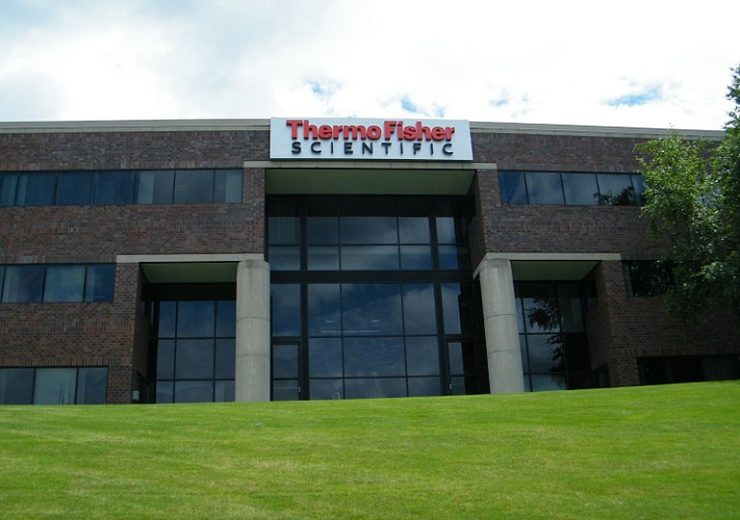The control sets are designed to evaluate the performance of serological assays for infectious diseases

Thermo Fisher launches MAS Omni Infectious Disease Quality Controls. (Credit: Coolcaesar/Wikipedia.)
Thermo Fisher Scientific has rolled out the Thermo Scientific MAS Omni Infectious Disease quality controls sets for monitoring serological assays for analytes including HIV 1&2, Hepatitis B & C virus, Syphilis and HTLV I/II.
The Thermo Scientific MAS Omni Infectious positive and negative quality controls are third-party, independent external controls, designed to evaluate the performance of serological assays for infectious diseases.
The company is commercialising its Thermo Scientific MAS Omni Infectious Controls in the US and Japan as IVD products and are intended for clinical use.
Thermo Fisher niche diagnostics business vice president and general manager Fernando Beils said: “We are expanding our quality control offering into a space which continues to increase each year as new pharma drugs are developed and enabling better identification and treatment for infectious diseases.”
“Our team is committed to providing innovative solutions to support our customers productivity. The Thermo Scientific MAS Omni Infectious Controls are the first in a line of products we are continuing to develop to support the monitoring of in vitro diagnostic tests.”
New controls will support assays for HIV, Hepatitis C, Hepatitis B, HTLV and Syphilis
Thermo Fisher said that serology testing for infectious diseases has been increasing and new instrument platforms are offering serology markers with enhanced sensitivity than before.
In addition, there is a continuous increase in infectious disease screening protocols that need serology testing for diagnosis, monitoring and treatment of infectious agents.
The new control set is designed to support assays for HIV, Hepatitis C, Hepatitis B, HTLV and Syphilis.
Thermo Fisher stated: “As with all Thermo Scientific MAS Quality Controls users can efficiently monitor assay performance, streamline operations and potentially reduce your spending without sacrificing quality or throughput.”
In February, the company entered into a collaboration with NanoPin Technologies to advance blood-based infectious disease detection technology through the development of highly sensitive liquid chromatography mass spectrometry (LC-MS)-based workflows.
NanoPin Technologies is the developer of the novel NanoPin diagnostic platform for rapid and quantified results from patient blood samples.
